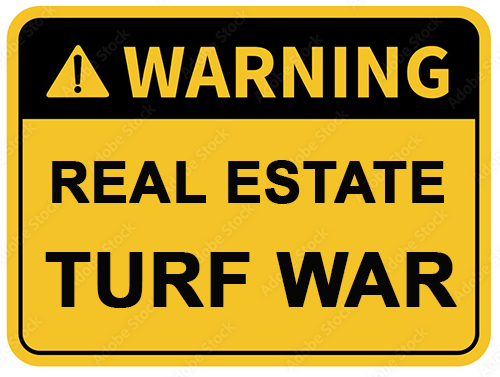The Evolving Landscape of Real Estate: Turf Wars Impact on Buyers and Sellers
Real estate’s competitive turf is heating up, with significant implications for both buyers and sellers in the market. Major brokerages are shifting strategies, igniting a debate that could reshape how properties are marketed.
What Are Real Estate Turf Wars?
Several brokerages are now prioritizing private networks to showcase their listings before they reach public platforms such as Zillow, Realtor.com, and Redfin. This approach is being touted as a way to achieve quicker sales or higher prices, although research often challenges this claim, indicating mixed results.
- Claims vs. Reality: While some studies suggest that limited exposure could lead to better offers, the consensus remains unsettled.
The methodology has not been without criticism. These firms have faced accusations of prioritizing their profits over the best interests of clients. If a property fails to secure a buyer through private marketing, brokerages do retain the right to publish it on public listings later.
Pushback from Major Portals
In response to this new strategy, platforms like Zillow and Redfin have implemented strict policies. Listings that are not immediately available to the public will be banned from their sites for the entire duration of the listing.
Consequences of Portal Policies
- Listing Restrictions: A failure to list an item publicly from Day 1 means that inventory could effectively vanish from key sites, limiting options for potential buyers.
- Power Dynamics: This creates a power struggle between brokerages aiming for exclusive marketing strategies and portals looking to protect their market share of home listings.
The Stakes in the Game
Portals like Zillow and Realtor.com heavily rely on their MLS integrations to generate leads for agents. As listings dwindle due to brokerages opting for private marketing, these platforms may face financial repercussions, potentially leading to unhappy sellers seeking different representation.
The Dynamics of Lead Generation
When a buyer clicks on a listing:
- Zillow and Similar Sites: Often sell leads to agents not involved with the listing, which can frustrate buyers unknowingly directed to agents lacking specific property knowledge.
- Feedback from Buyers: Many buyers are unaware of this redirection and express dissatisfaction when they realize they’re not connected with the listing agent directly.
A notable voice from within the industry pointedly remarked, "Zillow is not designed to sell your listings; it uses them to generate buyer leads for its pay-to-play agents."
Navigating the Future: Brokerage Strategies
Brokerages are faced with crucial decisions about marketing strategies:
- Will they opt for public visibility from the start or explore private marketing avenues?
- What impact will this have on their overall market share?
The risks are steep for both parties. If portals continue to impose consequences for delayed public listings, they may inadvertently lose valuable inventory while also frustrating sellers and agents alike.
How Homes.com Differs
A standout among the major platforms is Homes.com, which diverges from the traditional lead generation model:
- Direct Inquiries: Instead of selling leads, queries submitted from interested buyers go straight to the listing agent who has first-hand knowledge about the property.
- Buyer Awareness: Surveys reveal that buyers prefer direct communication with their listing agents, leading to a more satisfactory experience.
Conclusion: Will the Turf War Shift?
As brokerages and real estate portals continue their negotiations, the stakes remain high. What will buyers and sellers ultimately choose?
Key Takeaways:
- Strategic Decisions: Brokerages must carefully consider their marketing methods and the consequences of their decisions.
- Portal Dynamics: The interplay between brokerages and real estate portals may reshape the market, impacting lead generation and listing effectiveness.
- Vendor Alternatives: For sellers seeking comprehensive visibility without the threat of being blacklisted, engaging with platforms that connect buyers directly with listing agents is crucial.
For further assistance and marketing strategies that navigate these evolving dynamics, reach out to reputable agents experienced in fostering successful transactions amidst these competitive changes.
Explore More:
This ongoing turf war highlights the complexities of the real estate market, where strategies must evolve in sync with changing consumer behaviors and industry standards. Happy selling!


